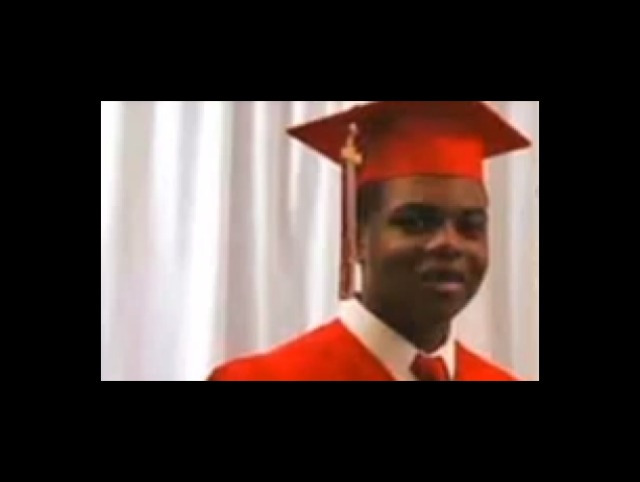Laquan McDonald Tells His Own Story In 2014 Interview
By Mae Rice in News on Dec 18, 2015 6:29PM

graduation picture
In March of 2014, seven months before a Chicago police offer killed him, Laquan McDonald spoke reflectively with a court clinician while doing time for drug possession in a juvenile detention facility.
He shared hopes to “slow down” and turn his life around, according to a 38-page summary of the conversation, part of a child-protection court file obtained by the Tribune.
In October of 2014, McDonald was shot 16 times and killed by Chicago police officer Jason Van Dyke. The video of the shooting was released to the public in November, and Van Dyke was formally indicted on six counts of murder and one count of official misconduct yesterday.
In the interview from last year, McDonald also spoke about his family. He wanted to avoid “following in the footsteps” of his dad, a mostly-absent father who was in and out of jail, plagued by drug addiction. McDonald also spoke about his great-grandmother, Goldie Hunter, his legal guardian of more than a decade. She died in 2013, and he wished he had been there for her more during her illness.
Overall, the interview paints McDonald as a hopeful kid, in spite of a challenging life that included stints as a ward of the state, mental health struggles, gang involvement, and selling drugs.
This passage was especially powerful:
His great-grandmother had encouraged him to "be (his) own man," and he wished he had done more to help her when she was ill, he said. Despite his problems, he said he was never suicidal."I love my life, even though (it is) hell," he said.
When asked to list three words that describe him, McDonald was at a loss to come up with even one. But, in response to questions about his goals, McDonald said he wanted to go to college and become a nurse. If he could have anything, McDonald said, he would want for his great-grandmother to be alive again, to have enough money to live and to "start (his) life over again," according to the court files.
It’s worth reading the whole story, and the Tribune’s previous dive into McDonald’s backstory. The McDonald shooting has been widely interpreted as a symbol of Chicago corruption, but it’s also the not-at-all symbolic death of a thoughtful teenager with plans for the future.